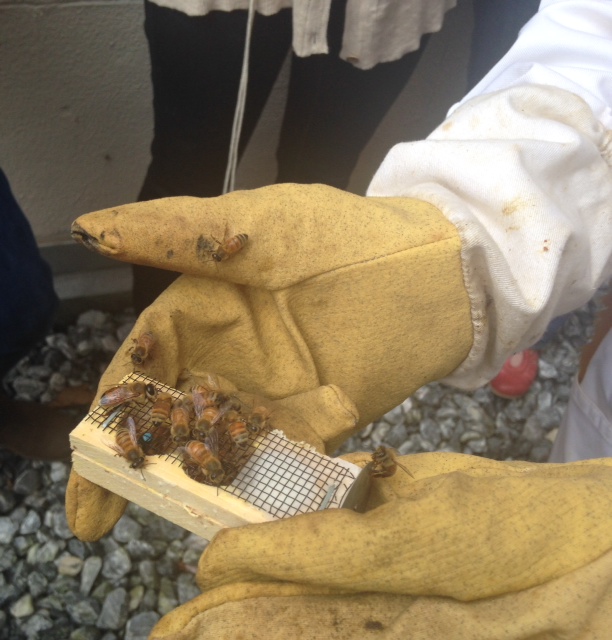
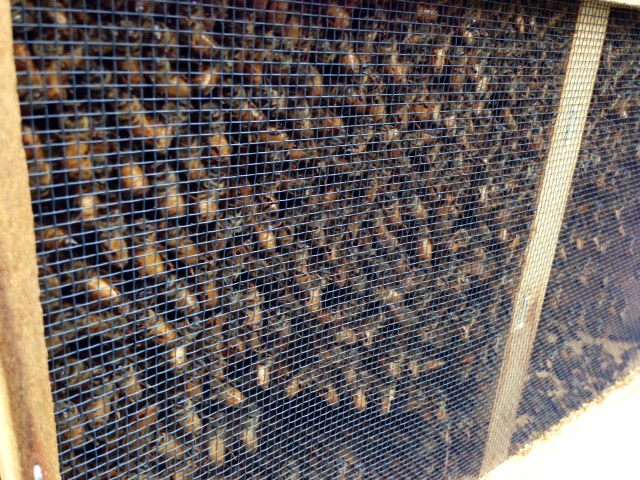
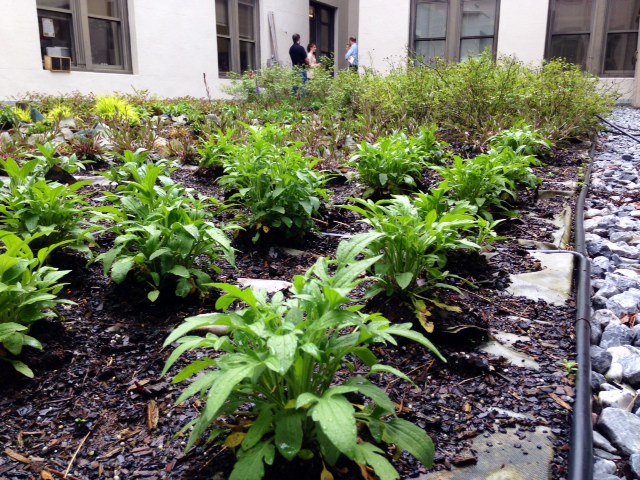
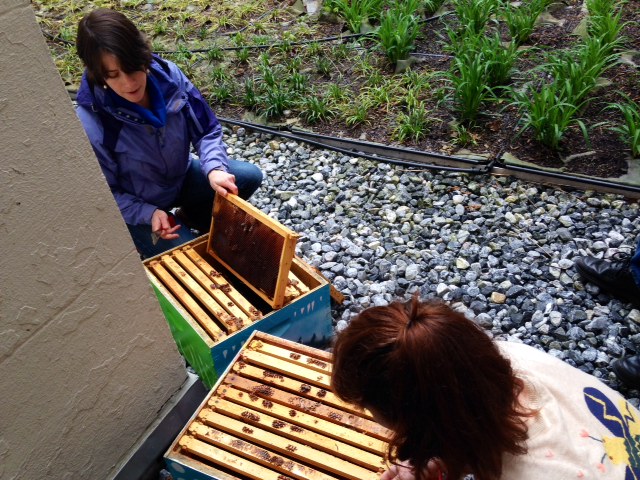
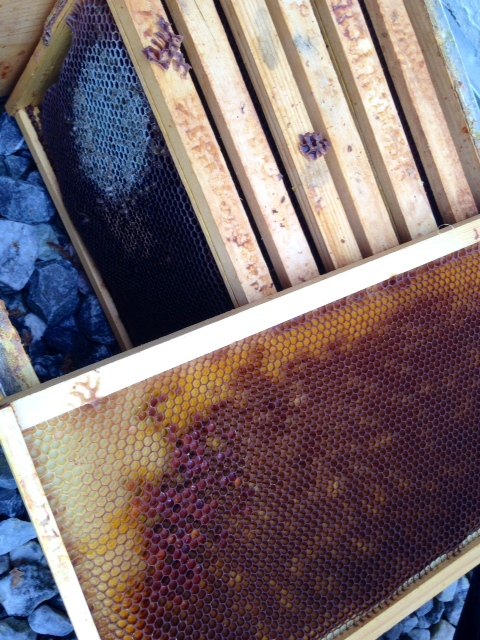
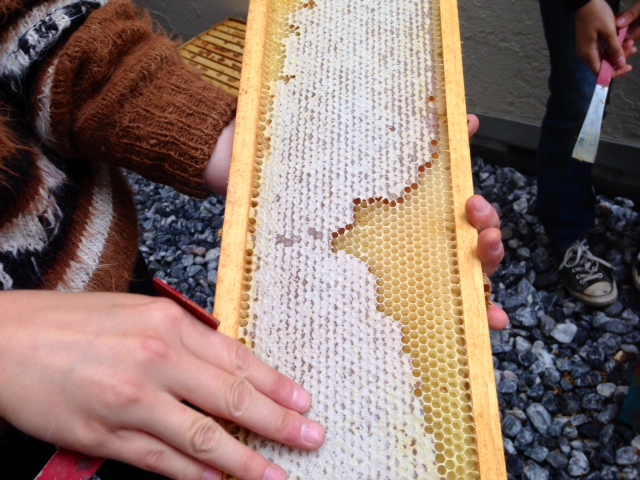
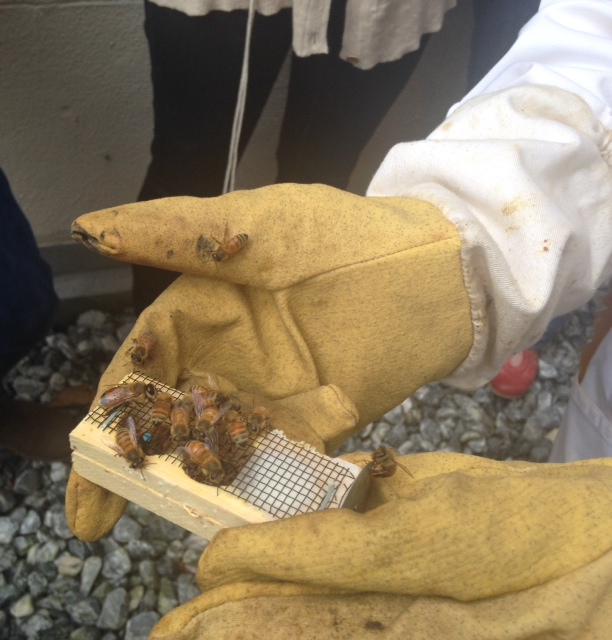
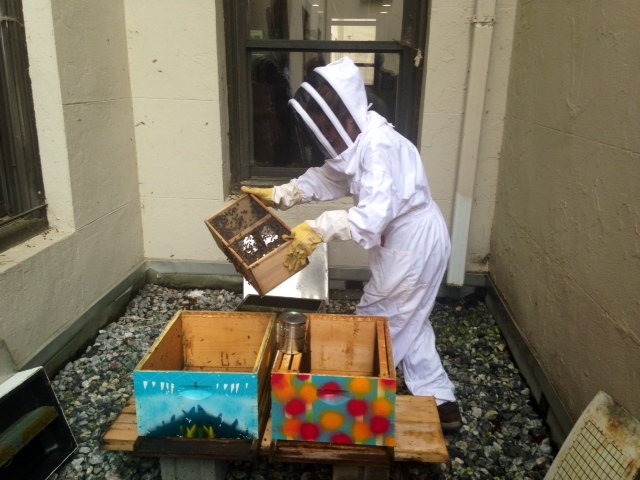
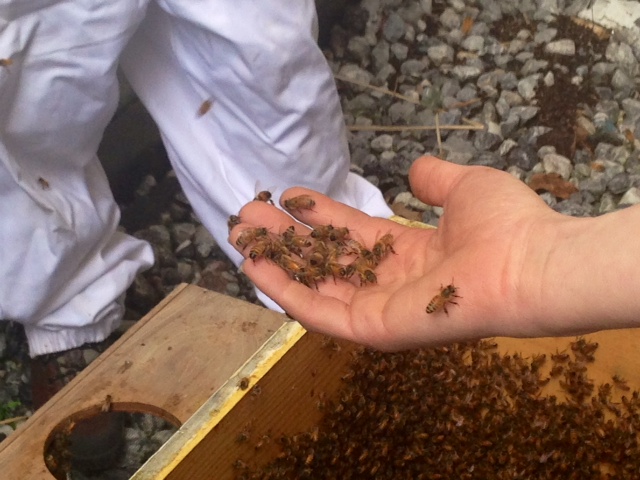
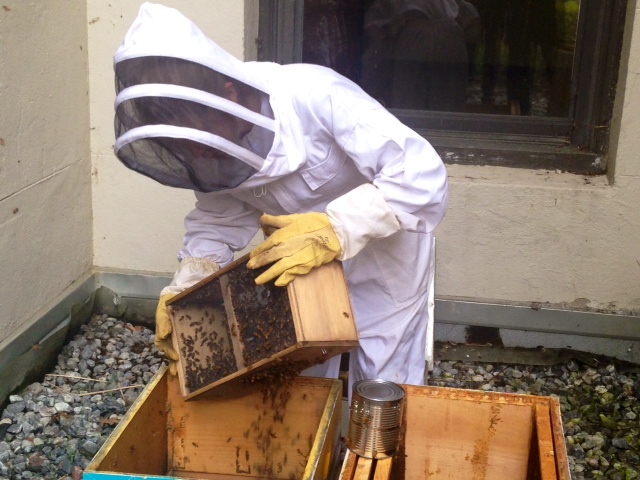
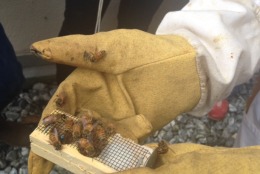
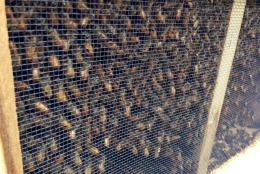

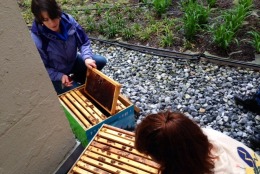
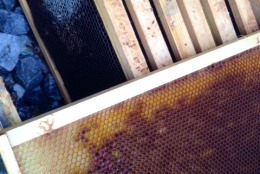
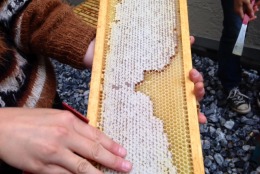
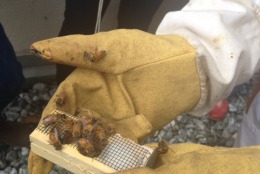
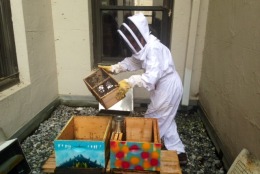
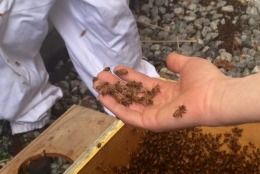
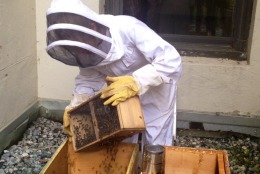
WASHINGTON — More than 250,000 people have signed an online petition asking major garden centers to stop treating their plants with pesticides that have been shown to contribute to the collapse of honey bee colonies.
It’s the latest effort in a years-long nationwide effort by a group of activists.
The SumofUs.org petition is gaining traction through signatures, demanding Home Depot and Lowe’s stores stop treating plants with a class of pesticides called neonicotinoids.
Eve Bratman, an assistant professor and head beekeeper at American University, says the pesticides have been shown to destroy bee colonies.
“It’s not clear that neonicotinoids are the sole culprit, but it would certainly be helpful to see them reduced within our food system more broadly because we know that it is one part of the equation,” Bratman says.
She leads a group of students in AU’s Beekeeping Society, who on Wednesday added two boxes of young bees into pre-built hives on the university’s green roof. The group took the opportunity to explain some best practices in keeping the new colony thriving.
American University is one of a handful of beekeeping programs in the D.C. area.
“We’re going to open it up and simple as that, they pour in,” says junior and club president Lauren Neville of the new hives. The group lost four hives over the winter.
But Neville says she has high hopes for these two budding hives, which she says the bees are naturally drawn to.
“The smell of the hive is going to keep them interested, and they’ll start working immediately and protecting their queen,” she says.
While the students help increase the local bee population, Bratman says it’s important for consumers to realize what they’re buying when they get chemicals for their gardens.
“Awareness has been raised on the part of consumers, and also with the relative intransigence of the EPA to regulate these pesticides — it has fallen more onto consumers movements to demand better practices from the stores where they are shopping,” Bratman says.
In response, Home Depot’s Corporate Communications Manager Catherine Woodling offered this statement:
“We’ve been in communication with the EPA, insecticide industry and our suppliers for many months to understand the science and monitor the research. We also offer alternative products for customers’ insecticide needs and are actively working with our garden suppliers to find alternative insecticides for protecting plants and the bees.”
Lowe’s has not yet returned WTOP’s request for a response.
Related Stories:
- Ranking the most painful places to get stung by a bee
- The buzz grows louder: More people turn to beekeeping
Follow @WTOP on Twitter and WTOP on Facebook.







